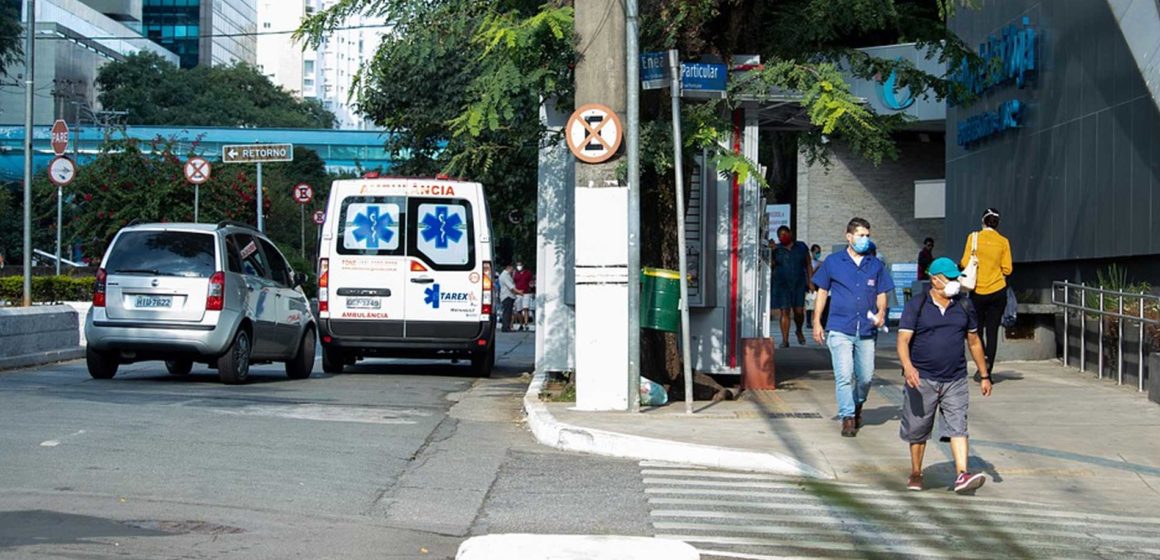Sao Paulo, Brazil (CNN)In Brazil’s largest and most badly infected city, coronavirus has yet to peak, yet already the healthcare system is crumbling visibly around us. As doctors struggle valiantly to save lives, the country’s President, Jair Bolsonaro, seems more focused on another sick patient: his country’s economy.
Brazil this week became the country with the second most infections worldwide after the United States, with more than 330,000 confirmed cases. But Bolsonaro, who once dismissed Covid-19 as a “little flu,” has urged businesses to reopen, despite many governors stressing social isolation measures to slow the spread.
In the huge intensive care unit (ICU) of Emilio Ribas Infectious Disease Institute in São Paulo, anger swirls among doctors when asked about their President’s comments. “Revolting,” says one. “Irrelevant” declares another.
Dr. Jacques Sztajnbok is more restrained. “It’s not a flu. It’s the worst thing we have ever faced in our professional lives.” His eyes slow and narrow, when I ask if he worries for his health. “Yes,” he says, twice.
The reasons why are clear inside the overwhelming silence of the ICU. Coronavirus kills behind the veil of a hospital curtain, in a stifling quiet, that is so distant and alien to the global upheaval and noisy political divisions it has inspired. But when it takes a life, it is intimately horrifying.
The first noticeable break in the calm is a flashing red light. The second, a doctor’s hair cover, moving up and down just above a privacy screen, as his rigid arms deliver hard, unforgiving chest compressions to a patient.
The patient is in her 40s, and her medical history has meant for days the odds on her survival are bad. But the change, when it comes, is sudden.
Another nurse runs in. In this ICU, the medical staff pause in an outer chamber to gown up and wash, but only moments before racing in. In the corridor outside, a doctor fumbles, clumsily pulling on his gown. These moments have come countless times before in the pandemic but, this day, it gets no easier. This ICU is full, and still the peak in São Paulo is probably two weeks away.
Through the glass, gowned staff jostle tightly together and circle the patient’s head; to replace tubes; to shift posture; to switch their position and relieve each other from the exhausting task. Their unforgiving compressions on the patients’ sternum are all that keep her alive.
A doctor emerges, sweat on her brow, to pause in the cooler, corridor air. A sliding glass door slams — a rare noise — as another rushes in. For 40 minutes, the quietly frenetic focus continues. And then, without audible warning, it suddenly stops. The lines on the heart monitors are flat, permanently.
Coronavirus has so pervasively damaged our life, but its way of killing remains so often hidden in the confines of ICUs, where only valiant healthcare workers see the trauma. And for the staff here, it feels closer daily.
Two days before our visit, they lost a nurse colleague Mercia Alves, 28 years in the job. Today, they stand together at the glass of another isolation room, inside which is a doctor on their team, intubated. Another colleague tested positive that day. The disease that has filled their hospital seems to be moving in on them.
Emilio Ribas hospital is full of bad tidings — with no more bed space before the peak hits, and staff already dying from the virus — but is the best-equipped the city of São Paulo has. And that is a dark harbinger for Brazil’s weeks ahead. Its biggest city is its wealthiest, where the local governor has insisted on a lockdown and face masks. Yet still the deaths number almost 6,000 and the more than 76,000 confirmed cases are chilling indications of what — even in likely the best-prepared place in Brazil — is to come.
Wealth not health preoccupies Bolsonaro, who has recently started calling the fight against the virus a “war.” But on May 14, he said: “We have to be brave to face this virus. Are people dying? Yes they are, and I regret that. But many more are going to die if the economy continues to be destroyed because of these [lockdown] measures.”




Leave a Reply